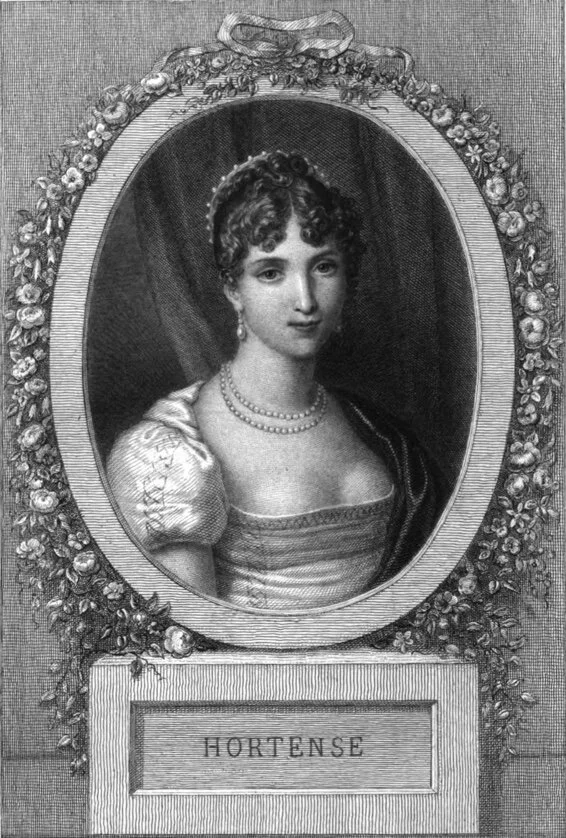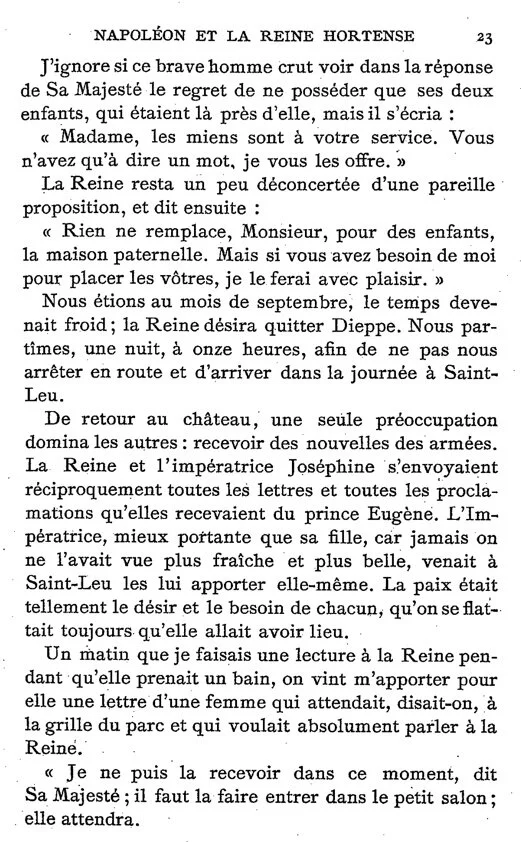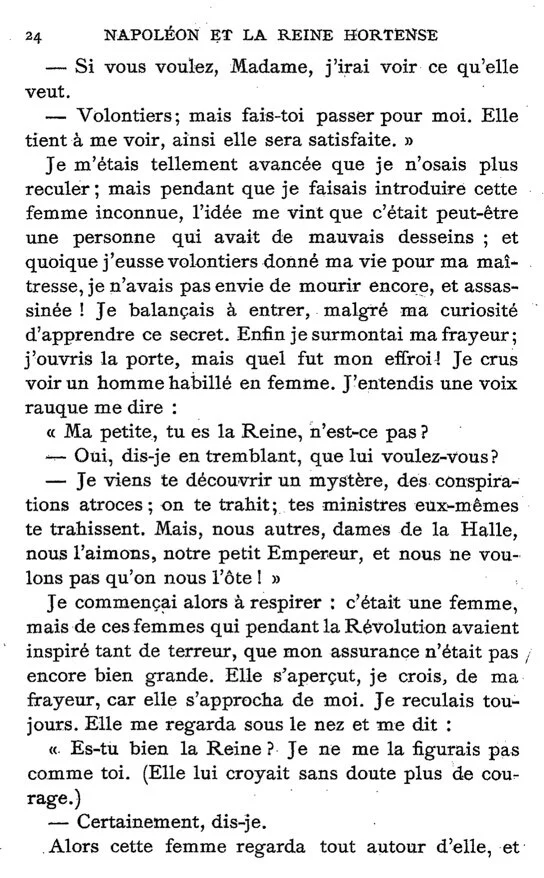This is part of a series where we translate the memoirs of Hortense’s lady Madame Cochelet. When we last left off Hortense was getting dunked in the water at the beach in Dieppe with a large number of people watching. Hortense had just told an authority at Dieppe that he was very lucky to have 12 children.
Madame Cochelet writes:
I do not know if this good man thought he saw in Her Majesty's reply regret at having only her two children, who were there near her, but he exclaimed:
"Madame, mine are at your service. You only have to say a word, I offer them to you. The Queen remained a little disconcerted by such a proposition, and then said:
"Nothing replaces, sir, for children, their father's house."
But if you need me to find a place for yours, I will be happy to do so.”
It was September, the weather was getting cold; the Queen wished to leave Dieppe.
We left, one night, at eleven o'clock, so we wouldn’t have to stop on the way and we could arrive at Saint-Leu during the day. On returning to the château, one concern dominated the others: receiving news from the armies.
The Queen and Empress Joséphine reciprocally sent each other all the letters and proclamations they received from Prince Eugene.
The Empress, better off than her daughter, since she had never been seen fresher and more beautiful, came to Saint-Leu to bring them to her herself.
Peace was everyone's desire and it was needed so much that we always boasted that it was going to take place. One morning, when I was reading to the Queen while she was taking a bath, someone came to bring me for her a letter from a woman who was said to be waiting at the gate of the park and who absolutely wanted to speak to the Queen.
"I cannot receive her at this moment," said Her Majesty; she must be brought into the little drawing-room; she will wait.”
“If you want, madam, I'll go see what she wants.”
”Gladly, but pretend to be me. She wants to see me, so she will be satisfied.”
I had advanced so far that I no longer dared to retreat; but while I was bringing in this unknown woman, the idea occurred to me that it was perhaps a person who had bad designs; and although I would have gladly given my life for my mistress, I did not want to die yet, and get murdered!
I hesitated to enter, despite my curiosity to learn this secret. Finally, I overcame my fear; I opened the door, but what was my fear!
I thought I saw a man dressed as a woman. I heard a hoarse voice say to me: "My dear, you are the Queen, aren't you?” “Yes, I said, trembling, what do you want?”
“I’ve come to discover a mystery about atrocious conspiracies. You are being betrayed; your ministers themselves are betraying you. But we, the ladies of la Halle, we love him, our little Emperor, and we don't want him to be taken from us!”
I then began to breathe: it was a woman, but one of those women who during the Revolution had inspired so much terror, that my confidence was not still very great. She realized, I believe, my fright, because she approached me.
I stepped back. She looked at me under the nose and said to me: "Are you the queen? I didn't imagine her like you.”
(She probably thought she’d have more courage.)
“Certainly”, I said.
Then this woman looked around, and -
To be continued.
…
Cela fait partie d'une série où nous traduisons les mémoires de la dame d'Hortense, Madame Cochelet.
La dernière fois que nous nous sommes arrêtés, Hortense se trempait dans l'eau à la plage de Dieppe avec un grand nombre de personnes qui regardaient.
Hortense venait de dire à une autorité de Dieppe qu'il était très chanceux d'avoir 12 enfants.



